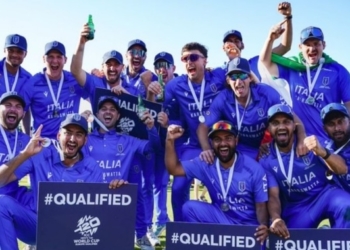In a decisive counter-terrorism operation, India launched Operation Sindoor, targeting nine sites across Pakistan and Pakistan-occupied Kashmir (PoK).
The strikes, conducted in response to the Pahalgam terrorist attack, were aimed at eliminating terrorist infrastructure while maintaining a restrained and non-escalatory approach.
The operation followed a brutal terrorist attack in Pahalgam, which claimed the lives of 25 Indians and one Nepali citizen. The assault led to widespread outrage across India and abroad, prompting the Indian government to take decisive military action.
Following the strikes, India’s National Security Advisor (NSA) Ajit Doval engaged in diplomatic outreach, speaking with key officials from several nations to clarify India’s position and prevent further escalation.
Doval held discussions with NSA counterparts from the United States, the United Kingdom, Saudi Arabia, the UAE, Japan, Russia, China, and France. Notably, the dialogue included US NSA & Secretary of State Marco Rubio, UK NSA Jonathan Powell, Saudi NSA Musaid Al Aiban, UAE NSA H.H. Sheikh Tahnoon, Secretary General of NSC of UAE Ali Al Shamsi, and NSA of Japan Masataka Okano. Additionally, diplomatic contacts were established with Russian NSA Sergei Shoigu, Chinese Foreign Minister Wang Yi, and Diplomatic Adviser to French President Emmanuel Bonne.
During these discussions, Doval reassured global leaders that while India’s military response was firm, it was intended to be measured and non-escalatory. India remains fully prepared to defend itself but does not seek a prolonged conflict.
Senior Indian military officials continue to monitor developments closely, ensuring readiness should Pakistan escalate further. While India seeks regional stability, it also remains committed to eliminating terror networks operating against its national interests.
Operation Sindoor has sent a clear geopolitical message, demonstrating India’s resolve in counter-terrorism efforts while navigating delicate diplomatic considerations.






























